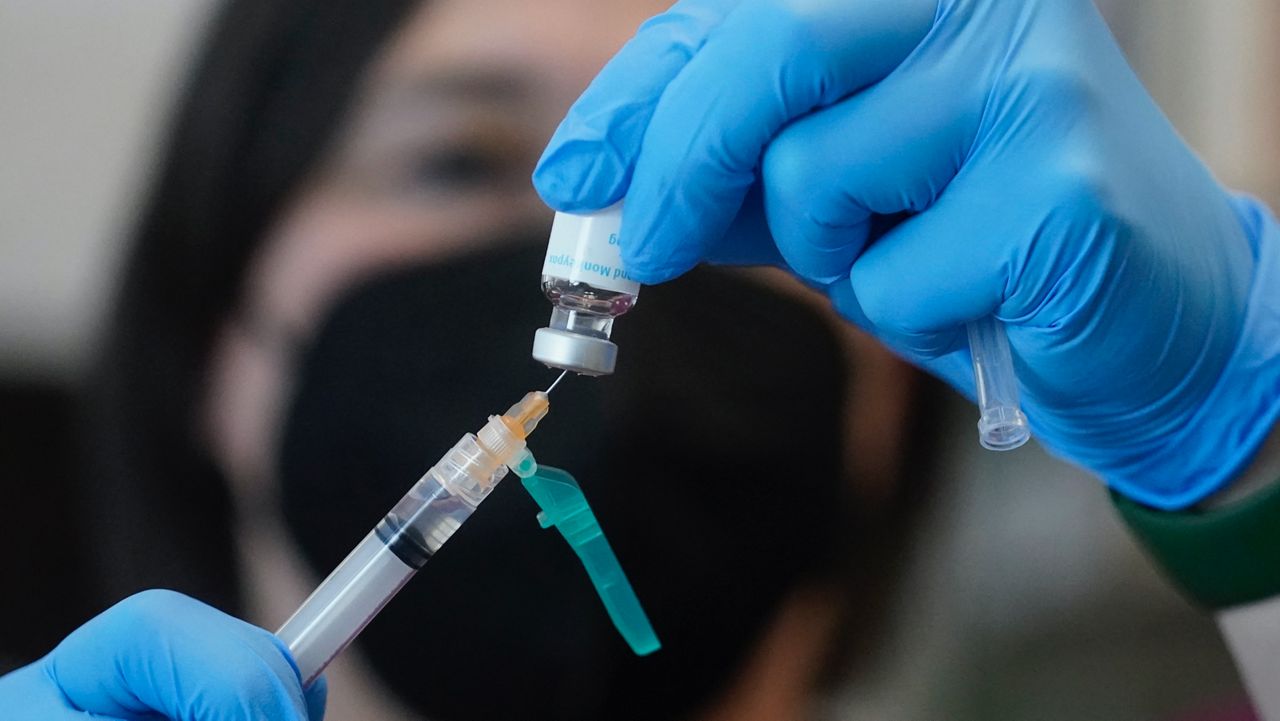AUSTIN, Texas — As health officials learn more about the monkeypox virus, they are working to rid those affected and stop the spread.
The Austin Public Health Department (APHD) said that with “expanded criteria and new authorizations” for the application of the monkeypox vaccine, eligibility for vaccination has extended to many others. The City of Austin, Travis County and community partners united to effort a large response in making vaccines available to the most vulnerable.
“At least 27 women are positive in the state, and we are seeing the spread within more people who weren’t sexually involved with another positive case and was spread through direct skin-to-skin contact or face-to-face spread through infected respiratory secretions,” said Dr. Desmar Walkes, of the Austin-Travis County Health Authority. “The virus is finding a way, but the vaccine is the way out.”
Having received a little over 5,000 vials of the Jynneos vaccines to date, 2,544 vials were given to CommUnityCare. The health center hosted a walk-up vaccine clinic with Ascension Seton near Austin PRIDE events, administering 1,910 vaccine doses in one weekend.
“By partnering together, we were once again able to target at-risk populations and get the much-needed monkeypox vaccine into arms,” said Travis County Judge Andy Brown. “I want to thank CommUnityCare for their efforts to get a vaccine clinic up and running in less than 48 hours. Their efforts will help prevent the spread of monkeypox by protecting our those in our community at highest risk.”
Kind Clinic and Vivent Health are other community organizations that have stepped in to help as well.
“Yet again, our community pulled together to help make sure those most at risk from monkeypox are protected. Thanks to our healthcare partners for mobilizing clinics and to the state and federal government for hearing our calls for more vaccines,” said Austin Mayor Steve Adler. “We will continue to fight for the resources we need to keep this community safe.”
An APH survey (Espanol) is accessible to the public for evaluating one’s current eligibility for the vaccine according to the Centers for Disease Control and Prevention guidelines.
In the last few months, APH epidemiology, equity line and nursing staff have addressed thousands of monkeypox-related calls. They will go forward in keeping callers updated with new info and book appointments for those without internet access.
In coordination with the APH Epidemiology and Public Health Preparedness Division, everyone that had confirmed positive cases were contacted to schedule a vaccine. Also, over 1,600 people who were on a waitlist finally got a scheduled appointment.
“We will continue to work with the U.S. Department of Health and Human Services and the Texas Department of State Health Services to demonstrate that obtaining more vaccines and using a community approach in its distribution is necessary to continue to fight this virus,” said APH Chief Administrative Officer Cassandra DeLeon.
Here are some protective measures to follow as monkeypox cases rise:
- Being fully clothed and avoiding skin-to-skin contact with strangers.
- Limiting close and or/intimate contact to people you know.
- Close contact includes sharing items like drinks and blankets.
- Wearing well-fitting masks in close quarters when social distancing isn’t possible to reduce direct exchange of mouth/nasal fluids
- Washing/sanitizing your hands as well as cleaning surfaces.
- Staying home if you feel sick or experience any symptoms.
- Learning monkeypox symptoms. Along with rash, symptoms include fever, headache and muscle aches, chills and swollen lymph nodes.
- Sharing credible information, see communications toolkit here.
- Monkeypox Festival Safety Flyers
- Monkeypox Laundry Guidance Flyers
- Back to College Monkeypox Safety Flyers
“This expanded eligibility criteria comes just after the U.S. Food and Drug Administration announced an emergency use authorization for the Jynneos vaccine to allow health care providers to administer the vaccine by intradermal injection (shallow injection under the skin) instead of subcutaneous injection (injection into the muscle tissue). Each vial may now provide 3-5 doses,” an APH report reads.
Reach out to your health care provider if you suspect you’ve been in close contact with someone who’s tested positive for monkeypox or you’re experiencing symptoms. Call APH’s Equity Line for information at 512-972-5560 if you don’t have health care.



